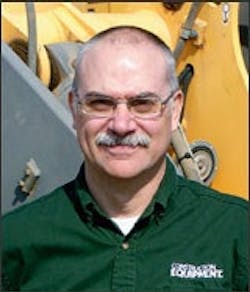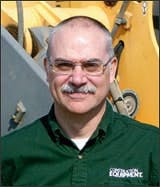Stand in the Gap
Secondary vocational schools and community colleges responded and have done an excellent job of offering more options. But a recent study by the Associated Equipment Distributors Foundation reveals that this educational option may be drying up, too.
The Foundation surveyed more than 120 trade and technical schools and found many programs near closing. One school reported the closing of its diesel-mechanics program due to a lack of students. Recruitment, in fact, was the top concern for these schools, followed by the challenges of staying abreast of new technology, funding program development, and insufficient industry assistance.
One private endeavor, Operators Local 150, last year started a technicians training program funded by the union. It purchased state-of-the-art technology, built a modern facility, and hired a training consultant to write curricula and training materials. The union owns a fleet of construction equipment for operator training, which it also uses in the technician's training program. But as program administrator Roger Allen told us, it's difficult to keep up with equipment technology without access to the newest equipment.
Private efforts such as Allen's will help supply tomorrow's technicians, and the industry can partner with them. But we need to remain focused on formal educational programs, too. The battleground has moved. High schools now argue about funding soccer programs; vo-tech's not even on the table. We need to follow the fight to the vocational school and community college levels. According to the AED Foundation, these schools need donations of equipment and training aids, help in recruiting students, scholarships for deserving students, and training for instructors.
There are plenty of gaps in the system; we need to pick some and fill them.
| Author Information |
| Rod Sutton, Editor in Chief, ASBPE Regional Award Winner, 630-288-8130, [email protected] |

